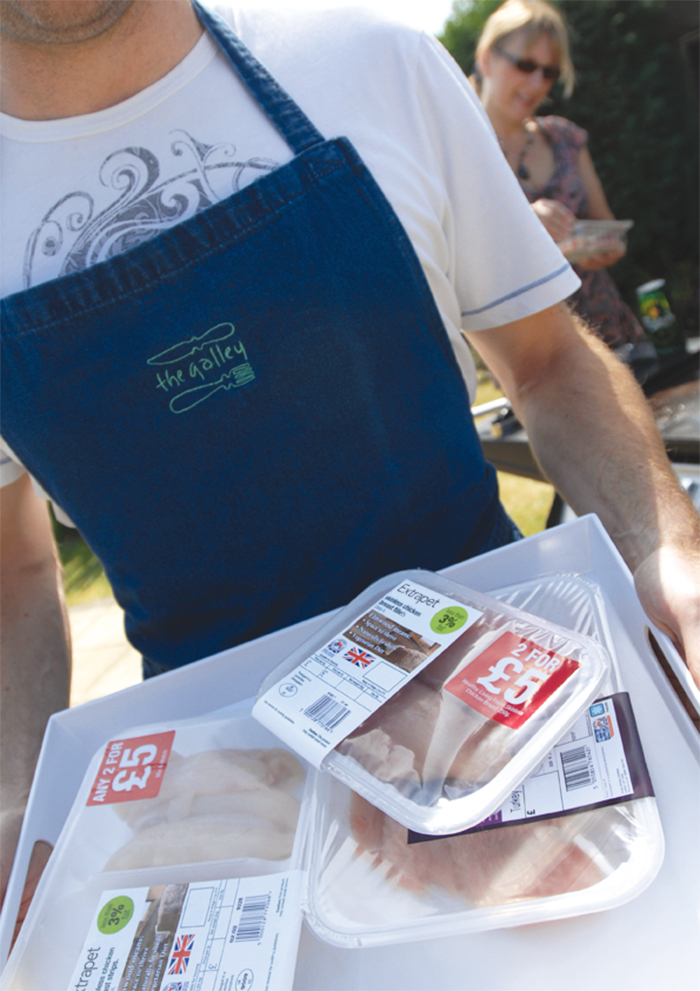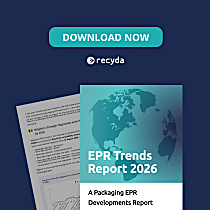Camvac adds 60% post-consumer recycled barrier lidding film to PET range

29 Jun 2021 --- UK-based Camvac is launching a 60 percent post-consumer recycled (PCR) PET barrier film branded ExtraPET PCR, meeting regulatory demands for recycled food-grade packaging solutions.
Notably, the EU’s Plastics Strategy requires all packaging to be recyclable or reusable in an economically viable way by 2030, while its recently introduced plastics tax imposes a €0.80/kg (US$0.95/kg) levy on unrecycled plastic packaging waste.
Meanwhile, the UK government has released draft legislation on a nationwide plastic packaging tax – effective from April 2022 – for public consultation. The legislation proposes a £200 (US$278) per ton tax rate for plastic packaging with less than 30 percent recycled plastic content.
Camvac’s new barrier film is the latest addition to its ExtraPET film range, used primarily within the food and converter marketplace.

“Camvac’s ‘standard’ ExtraPET all-PET laminate structure has been a world-leading lidding film solution for numerous years,” Dan Collins, marketing manager at Camvac, tells PackagingInsights.
“So choosing to expand this range and offer our customers a PCR grade barrier PET film as our first development within the PCR market is the ideal solution.”
The Norfolk-based supplier was the first company in Europe to develop and commercialize food-contact grade metalized PET and OPP films.
Recycled material, same performance
Camvac’s Development Team set out to reduce plastic waste and prevent the material from ending up in landfill. The PCR film reduces the use of fossil feedstocks and associated carbon emissions while supporting recycling.
The solution also provides an all-PET structure and maintains high gas barrier performance – both OTR and WVTR – as required for MAP and CAP packaging applications. The ExtraPET film range can be found in most UK supermarkets.
The ExtraPET film range can be found in most UK supermarkets.
“We needed to produce a film matching the barrier performance of our standard ExtraPET film but also exceeding the necessary percentage of recycled material to be compliant with the proposed UK Plastic Packaging Tax,” explains Collins.
“Exceeding the percentage required by over double means the ExtraPET PCR film will be a long-term solution for our customers.”
Available in either peel or weld seal laminate structures, the mono-material lidding film has been designed to offer “excellent” sealing properties and “exceptional” barrier performance.
The laminate film’s versatility makes it suitable for a wide range of processed meats, fresh meats, poultry, pasta, vegetable and bakery packaging solutions.
Technical and supply challenges
The main technical challenge in developing the ExtraPET PCR film was achieving the required barrier performance to match the standard ExtraPET film.
“This has been achieved with the PCR lidding film development coming directly from the Development Team’s hard work but also our Production Team’s eagerness to create an even more sustainable film to meet what the market is demanding,” Gary Chalkely, development director at Camvac, tells PackagingInsights.
The solution also matches virgin quality film appearance with food-contact approved PCR grade base webs. Notably, no yellow hints are visible in the barrier lidding film.
However, Collins points out there are continued supply challenges resulting from the COVID-19 pandemic for recycled plastics industry-wide, not just recycled PET. Dan Collins, marketing manager at Camvac, reports continued recycled plastic supply challenges resulting from COVID-19.
Dan Collins, marketing manager at Camvac, reports continued recycled plastic supply challenges resulting from COVID-19.
“Camvac’s purchasing team continues to work closely with its suppliers to secure material and ensure customers’ orders can be fulfilled,” he reassures.
“We have good master stocks for ExtraPET PCR in peel and weld seal and continue to add to this stock so customer orders can be fulfilled without delay.”
Flexible Packaging Europe recently warned continuing raw material availability issues are creating a potential risk to the stable supply of food, pharmaceutical and medical products.
Recyclable where infrastructure exists
Since ExtraPET films are all-polyester structures, they are recyclable where post-consumer collection infrastructure is available, Camvac highlights.
The peelable ExtraPET PCR is available as an adhesive laminate of between 12-20 micron polyester. Meanwhile, the weld seal laminate structure is available between 12-15 micron polyester.
The ExtraPET film range is found in most UK supermarkets and has a growing presence globally, particularly in mainland Europe.
By Joshua Poole











